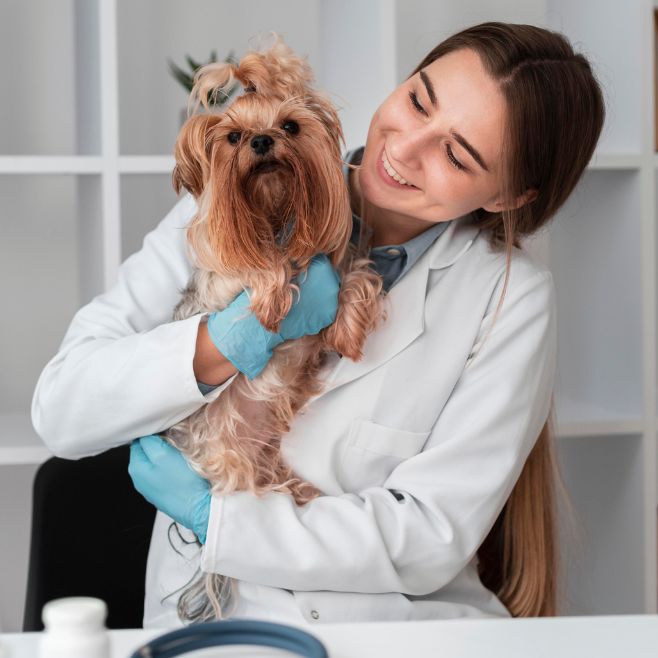Wellness Exams
The Importance of Wellness Exams for Pets: A Comprehensive Guide
As a pet owner, you want the best for your furry friend. One of the most important things you can do to ensure their health and happiness is to schedule regular wellness exams with your veterinarian. In this article, we will discuss the importance of wellness exams for pets, what they entail, and how often you should schedule them.
Early Detection
Prevention of Health Issues
Improved Quality of Life
A Critical Aspect of Pet Ownership
What is a Wellness Exam?
A wellness exam is a routine check-up that focuses on maintaining your pet’s overall health and preventing potential health issues. These exams are not just for when your pet is sick or injured; they are important for preventative care.
During a wellness exam, your veterinarian will conduct a thorough physical examination of your pet, including checking their eyes, ears, nose, mouth, skin, and coat. They will also check your pet’s vital signs, including their heart rate, respiration rate, and body temperature. Additionally, your vet may recommend diagnostic tests, such as blood work or urinalysis, to check for any underlying health issues.


The Importance of Wellness Exams
Regular wellness exams are crucial for your pet’s overall health and well-being. They allow your veterinarian to identify potential health issues before they become serious, potentially saving your pet’s life. Additionally, wellness exams give you the opportunity to ask your veterinarian any questions you may have about your pet’s health and behavior.
How Often Should You Schedule Wellness Exams?
The frequency of wellness exams will depend on your pet’s age and health status. In general, younger pets may require more frequent exams than older pets. Here are some guidelines:
Puppies and Kittens: Young pets should receive wellness exams every 3-4 weeks until they are around 16 weeks old. During these exams, your veterinarian will check your pet’s growth and development, administer vaccinations, and perform routine tests.
Adult Pets: Adult pets should receive wellness exams once a year. During these exams, your veterinarian will check your pet’s overall health and perform any necessary diagnostic tests.
Senior Pets: Senior pets (usually around 7 years of age for dogs and 10 years of age for cats) should receive wellness exams every six months. As pets age, they are more susceptible to health issues such as arthritis, diabetes, and cancer, and regular exams can help detect and manage these issues.

